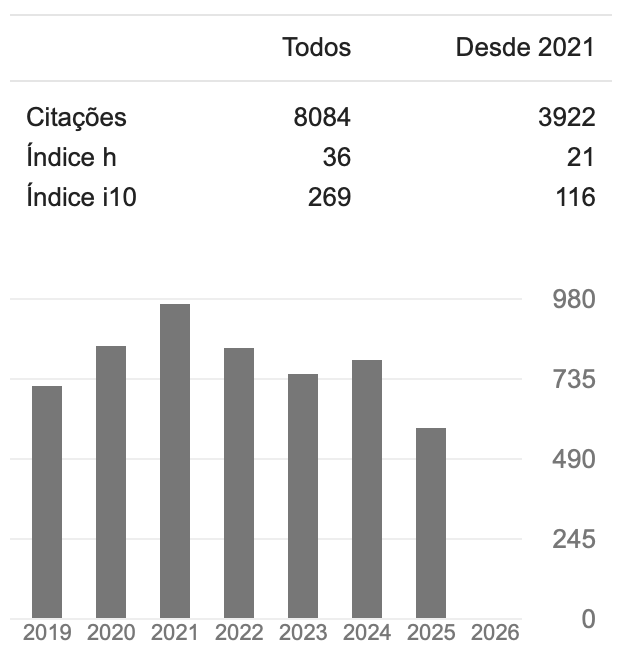Treinamento pliométrico e virtual para prevenção de lesões em mulheres jovens: uma abordagem qualitativa
DOI:
https://doi.org/10.17765/2176-9206.2021v14n4e8026Palavras-chave:
Grupo focal, Pesquisa qualitativa, Terapia de exposição à realidade virtual, Treinamento pliométricoResumo
O objetivo do estudo foi explorar as opiniões das voluntárias de um protocolo de treinamento pliométrico associado a exercícios resistidos (TPER) e virtual (TV) para prevenção de lesões. Essa abordagem foi escolhida, pois as percepções dos pacientes em geral podem ser negligenciadas. A coleta de dados ocorreu com dois grupos focais (GFs), e para isso formalizou-se o convite a sete participantes de cada um deles que já houvessem finalizado o treinamento. Realizou-se um encontro, com duração média de 60 minutos para cada grupo de intervenção, e um moderador treinado o conduziu; as sessões foram gravadas em áudio e transcritas posteriormente para análise. As participantes relataram em ambos os treinos o aumento do condicionamento físico, resistência e força muscular. Concluiu-se que no TPER foi mais destacada a melhora do equilíbrio e estabilidade de membros inferiores, já no TV isso ocorreu em relação à concentração e à disposição para a rotina diária.Downloads
Referências
1. Taunton JE, Ryan MB, Clement DB, McKenzie DC, Lloyd-Smith DR, Zumbo BD. A retrospective case-control analysis of 2002 running injuries. Br J Sports Med. 2002 abr;36(2):95-101.
2. Cavalcanti RR, Araújo, VRQ, Vasconcelos DA, Silva WR Júnior. Avaliação funcional do movimento: incidência do valgo dinâmico do joelho em mulheres praticantes de musculação e sedentárias. Fisiot. Pesq. 2019;26(2):120-6.
3. Sugimoto D, Myer GD, Barber Foss KD, Hewett TE. Dosage effects of neuromuscular training intervention to reduce anterior cruciate ligament injuries in female athletes: meta-and sub-group analyses. Sports Med. 2014 abr;44(4):551-62.
4. Baldon RM, Lobato DFM, Yoshimatsu AP, Santos AF, Francisco AL, Santiago PRP, et al. Effect of plyometric training on lower limb biomechanics in females. Clin J Sport Med. 2014;14:44-50.
5. Mumford N, Wilson PH. Virtual reality in acquired brain injury upper limb rehabilitation: evidence-based evaluation of clinical research. Brain Inj. 2009 mar;23(3):179-91.
6. Treede RD, Rief W, Barke A, Aziz Q, Bennett MI, Benoliel R, et al. A classification of chronic pain for ICD-11. Pain. 2015;156(6):1003-7.
7. Nagelli C, Di Stasi S, Tatarski R, Chen A, Wordeman S, Hoffman J, et al. Neuromuscular training improves self-reported function and single-leg landing hip biomechanics in athletes after anterior cruciate ligament reconstruction. Orthopaedic Journal of Sports Medicine. 2020; 8(10):2325967120959347.
8. Bauer MW, Gaskell G. Pesquisa qualitativa com texto, imagem e som. 10a ed. Petrópolis, RJ: Vozes; 2012.
9. Gaskell G. Entrevistas individuais e grupais. In: Bauer MW, Gaskell G, editores. Pesquisa qualitativa com texto, imagem e som. Petrópolis, RJ: Vozes, p. 64-89 2002.
10. Lyons EJ. Cultivating engagement and enjoyment in exergames using feedback, challenge, and rewards. Games for Health Journal. 2015;4(1):12-8.
11. Bosi MLM. Pesquisa qualitativa em saúde coletiva: panorama e desafios. Ciênc Saúde Coletiva. 2012 mar;17(3):575-86.
12. Silva SA, Alves VS, Souza LA, Donzeli MA, Bertoncello D. Função, atividade e participação na percepção do paciente com dor lombar crônica: estudo em um grupo focal. Rev Ciênc Saúde. 2020 maio;10(3):15-21.
13. Gatti BA. Grupo focal na pesquisa em Ciências Sociais e Humanas. Brasília, DF: Líber Livro Editora; 2005. (Série Pesquisa em Educação. v. 10).
14. Minayo MCS. O desafio do conhecimento: pesquisa qualitativa em saúde. 12a ed. São Paulo: Hucitec; 2010.
15. Bardin L. Análise de conteúdo. 6a ed. São Paulo: Edições 70; 2011.
16. Kiapour AM, Demetropoulos CK, Kiapour A, Quatman CE, Wordeman SC, Goel VK, et al. Strain response of the anterior cruciate ligament to uniplanar and multiplanar loads during simulated landings: implications for injury mechanism. Am J Sports Med. 2016 Aug.;44(8):2087-96.
17. Fox AS. Change-of-Direction Biomechanics: Is what’s best for anterior cruciate ligament injury prevention also best for performance? Sports Med. 2018 Aug.;48(8):1799-807.
18. Michaelidis M, Koumantakis GA. Effects of knee injury primary prevention programs on Anterior Cruciate Ligament injury rates in female athletes in different sports: a systematic review. Physical Therapy in Sport. 2014;15(3):200-10.
19. Sugimoto D, Myer GD, Foss KDB, Pepin MJ, Micheli LJ, Hewett TE. Critical components of neuromuscular training to reduce ACL injury risk in female athletes: meta-regression analysis. British Journal of Sports Medicine. 2016; 50(20):1259-66.
20. Donnell-Fink LA, Klara K, Collins JE, Yang HY, Goczalk MG, Katz JN, et al. Effectiveness of knee injury and anterior cruciate ligament tear prevention programs: a meta-analysis. PLoS ONE. 2015;10(12):e0144063. doi: https://doi.org/10.1371/journal.pone.0144063
21. Ramirez-Campillo R, Alvarez C, Sanchez-Sanchez J, Slimani M, Gentil P, Chelly MS, et al. Effects of plyometric jump training on the physical fitness of young male soccer players: modulation of response by inter-set recovery interval and maturation status. J Sports Sci. 2019 Dec.;37(23):2645-52.
22. Shin J-H, Bog Park S, Ho Jang S. Effects of game-based virtual reality on health-related quality of life in chronic stroke patients: A randomized, controlled study. Comput Biol Med. 2015 Aug.;63:92-8.
23. Araujo S, Cohen D, Hayes L. Six weeks of core stability training improves landing kinetics among female capoeira athletes: A pilot study. J Hum Kinet. 2015 Apr.; 45:27-37.
24. Medeiros PD, Capistrano R, Zequinão MA, Silva SAD, Beltrame TS, Cardoso FL. Exergames como ferramenta de aquisição e desenvolvimento de habilidades e capacidades motoras: uma revisão sistemática. Rev Paul Ped. 2017;35(4):464-71.
25. Nguyen HV, Huang HC, Wong MK, Yang YH, Huang TL, Teng CI. Moderator roles of optimism and weight control on the impact of playing exergames on happiness: The perspective of social cognitive theory using a randomized controlled trial. Games for Health Journal. 2018;7(4):246-52.
26. Bonnechère B, Jansen B, Omelina L, Van Sint Jan S. The use of commercial video games in rehabilitation: a systematic review. Int J Rehabil Res. 2016 Dec.;39(4):277-90.
27. Meneghini V, Barbosa AR, Mello ALSF, Bonetti A, Guimarães AV. Perception of the elderly regarding participation in exergaming-based exercise: a qualitative study. Ciênc. Saúde Coletiva. 2016 abr;21(4):1033-41.
28. Gutekunst M, Geuss M, Rauhöft G, Stefanucci J, Kloos U, Mohler B. Short Paper: A video self-avatar influences the perception of heights in an augmented reality Oculus Rift. International Conference on Artificial Reality and Telexistence Eurographics Symposium on Virtual Enviroments. 2014:9-12.
29. Vojciechowski AS, Natal JZ, Gomes ARS, Rodrigues EV, Villegas ILP, Korelo RIG, et al. Effects of exergame training on the health promotion of young adults. Fisioterapia em Movimento. 2017 mar;30(1):59-67.
30. Otte FW, Davids K, Millar SK, Klatt S. When and how to provide feedback and instructions to athletes? How sport psychology and pedagogy insights can improve coaching interventions to enhance self-regulation in training. Front Psychol. 2020;11:1444. doi: 10.3389/fpsyg.2020.01444
Arquivos adicionais
Publicado
Como Citar
Edição
Seção
Licença
A submissão de originais para a revista Saúde e Pesquisa implica na transferência da Carta Concessão de Direitos Autorais, pelos autores, dos direitos de publicação digital para a revista após serem informados do aceite de publicação.A Secretaria Editorial irá fornecer da um modelo de Carta de Concessão de Direitos Autorais, indicando o cumprimento integral de princípios éticos e legislação específica. Os direitos autorais dos artigos publicados nesta revista são de direito do autor, com direitos da revista sobre a primeira publicação. Os autores somente poderão utilizar os mesmos resultados em outras publicações, indicando claramente a revista Saúde e Pesquisa como o meio da publicação original. Em virtude de tratar-se de um periódico de acesso aberto, é permitido o uso gratuito dos artigos, principalmente em aplicações educacionais e científicas, desde que citada a fonte. A Saúde e Pesquisa adota a licença Creative Commons Attribution 4.0 International.
A revista se reserva o direito de efetuar, nos originais, alterações de ordem normativa, ortográfica e gramatical, com vistas a manter o padrão culto da língua e a credibilidade do veículo. Respeitará, no entanto, o estilo de escrever dos autores. Alterações, correções ou sugestões de ordem conceitual serão encaminhadas aos autores, quando necessário. Nesses casos, os artigos, depois de adequados, deverão ser submetidos a nova apreciação. As opiniões emitidas pelos autores dos artigos são de sua exclusiva responsabilidade.


















